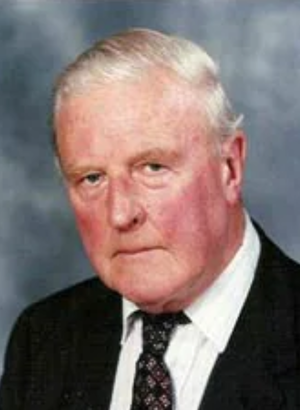Christopher Seton-Watson
( academic, spook) | |
|---|---|
 | |
| Born | August 6, 1918 London |
| Died | September 8, 2007 (Age 89) |
| Nationality | UK |
| Alma mater | • Winchester College • New College (Oxford) |
| Parents | |
| Siblings | |
Professor at Oxford who was a "talent scout" for the British security services. From spooky family. | |
Christopher Seton-Watson was a British soldier, intelligence scout and historian specializing in political science and Italian history. He taught at Oxford University, and was the founder of the Association for the Study of Modern Italy.
Biography
Education
Seton-Watson was one of the two sons of Robert William Seton-Watson, the activist and historian, and brother of Hugh Seton-Watson. He was educated at Winchester College and New College, Oxford. As a visiting student at Princeton, he regularly shared a taxi with Albert Einstein.[1]
War-time activities
During the Second World War Seton-Watson served in the Royal Artillery. He saw action during the Battle of France and was evacuated at Dunkirk. He then took part in the Greek campaign, the North African Campaign (including the Battles of El Alamein) and the Italian Campaign.[2] He was promoted to the rank of major, and awarded the Military Cross with bar. He wrote about these experiences in Dunkirk-Alamein-Bologna: Letters and Diaries of an Artilleryman 1939-1945.
Academic career
In 1946, Seton-Watson was elected to a fellowship in Modern History and Politics at Oriel College, Oxford on being awarded an MA as a war degree. He remained at Oriel until his retirement in 1983, working on liberal Italy (1870–1922) and its foreign policy. His best-known work was Italy from Liberalism to Fascism, 1870-1925 (1967). In 1982 he founded the Association for the Study of Modern Italy.[3]
While at Oriel, he focused on teaching, and was also a "talent scout" for the British security services.[1] He supervised generations of PhD students who would become historians and political scientists of Italy, and inspired and encouraged others. [3]
References
- ↑ Jump up to: a b https://www.telegraph.co.uk/news/obituaries/1567461/Christopher-Seton-Watson.html
- ↑ Seton-Watson, Christopher. Dunkirk-Alamein-Bologna: Letters and Diaries of an Artilleryman 1939-1945.
- ↑ Jump up to: a b https://www.theguardian.com/news/2007/dec/04/guardianobituaries.internationaleducationnews